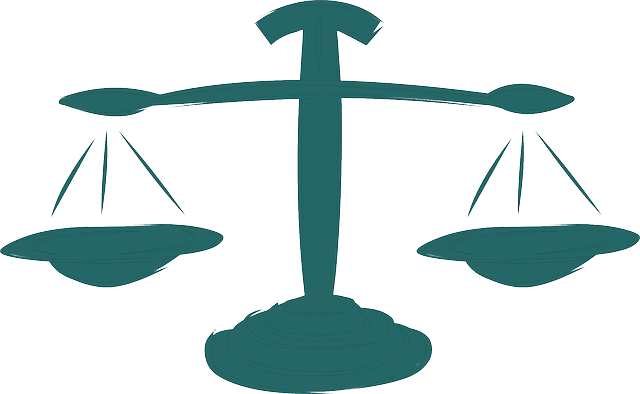Antitrust laws are vital for maintaining fair competition and protecting consumers from harmful business practices. Companies facing criminal antitrust violation charges need specialized legal representation to navigate complex strategies, gather evidence, and explore defenses like lack of anti-competitive behavior or minimal consumer harm. The goal is to achieve a complete dismissal of charges, avoiding severe consequences such as financial penalties, reputational damage, and market disruption. A robust defense in criminal court sends a message against unfair business practices while ensuring fairness for the accused.
Antitrust violation cases involve businesses accused of undermining fair competition, a practice that can distort markets and harm consumers. Understanding these laws and their purpose is crucial for both regulators and businesses. This article delves into common types of antitrust breaches, strategies for defending against charges in criminal court, and the significant impacts and consequences of conviction. By exploring these aspects, we aim to equip readers with knowledge on navigating such complex legal issues effectively.
- Understanding Antitrust Laws and Their Purpose
- Common Types of Antitrust Violation Cases
- Defending Against Charges: Strategies and Rights
- The Impact and Consequences of Conviction
Understanding Antitrust Laws and Their Purpose

Antitrust laws are designed to promote fair competition in the marketplace and protect consumers from harmful business practices. These laws aim to prevent companies from engaging in activities that could restrict trade, suppress innovation, or unfairly control prices. By understanding these regulations, businesses can better defend themselves against potential assault charges in criminal court.
An unprecedented track record of successful outcomes can be achieved when navigating complex antitrust violation cases. Skilled legal representatives who specialize in this field are crucial for guiding companies through the process. Their expertise ensures that clients not only avoid indictment but also understand the underlying issues to strengthen their position and achieve extraordinary results.
Common Types of Antitrust Violation Cases

Antitrust violation cases encompass a range of actions that restrict competition and distort market forces. One common type involves price-fixing, where businesses collude to set prices, eliminating competitive bidding and harming consumers. Another prevalent scenario is market division, where companies carve up territories or customer segments, preventing competition from entering these spaces. This practice can stifle innovation and increase prices for consumers.
Defending against assault charges in criminal court is a serious matter, especially in high-stakes cases involving white collar and economic crimes. In the context of antitrust violations, businesses must be prepared to navigate complex legal landscapes. The philanthropic and political communities often play a role in these cases, as they can provide insights into industry dynamics and potential regulatory loopholes. Effective defense strategies require thorough investigations, robust documentation, and a deep understanding of antitrust laws, ensuring companies can protect their interests while upholding fair market practices.
Defending Against Charges: Strategies and Rights

When facing antitrust violation charges, which can be complex and high-stakes cases, a robust defense strategy is paramount. The first step for any individual or entity accused is to understand their rights. They are entitled to legal counsel who can navigate the intricate web of antitrust laws and regulations. A general criminal defense attorney specializing in antitrust law will scrutinize the evidence, identify procedural errors, and explore potential defenses, such as arguing that the actions were not anti-competitive or that there was no harm to consumers.
A key strategy is to gather comprehensive documentation and evidence that refutes the allegations. This may involve presenting market studies demonstrating competitive dynamics, contracts or agreements that were legal at the time, and any internal communications showing a lack of intent to violate antitrust laws. The goal is to achieve a complete dismissal of all charges, ensuring fairness and protecting against unfair business practices that can result from erroneous accusations.
The Impact and Consequences of Conviction

A conviction for an antitrust violation can have severe and far-reaching consequences for businesses and individuals involved. In high-stakes cases, where the allegations are significant, defending against assault charges in criminal court becomes a complex and challenging task. The impact extends beyond potential financial penalties; it can lead to irreparable reputational damage, market disruption, and even structural changes within the respective business.
When facing such accusations, mounting a winning challenging defense is crucial. Legal strategists must navigate intricate legal frameworks and present compelling arguments to counter the prosecution’s claims. Successful verdicts in these cases not only protect the rights of the accused but also send a message that unfair business practices will not be tolerated, fostering a fairer market environment for all participants.
Antitrust violation cases can have significant economic and legal repercussions. Understanding these laws, recognizing common violations, and knowing your rights are crucial steps in defending against charges. In the event of a conviction, the consequences can be severe, impacting business operations and reputation. However, with the right strategies, businesses can navigate these complex cases, ensuring they protect their interests while upholding fair competition principles. Remember, when faced with allegations, prompt action and professional guidance are essential to mitigate potential damage, especially in defending against assault charges in criminal court related to antitrust issues.






